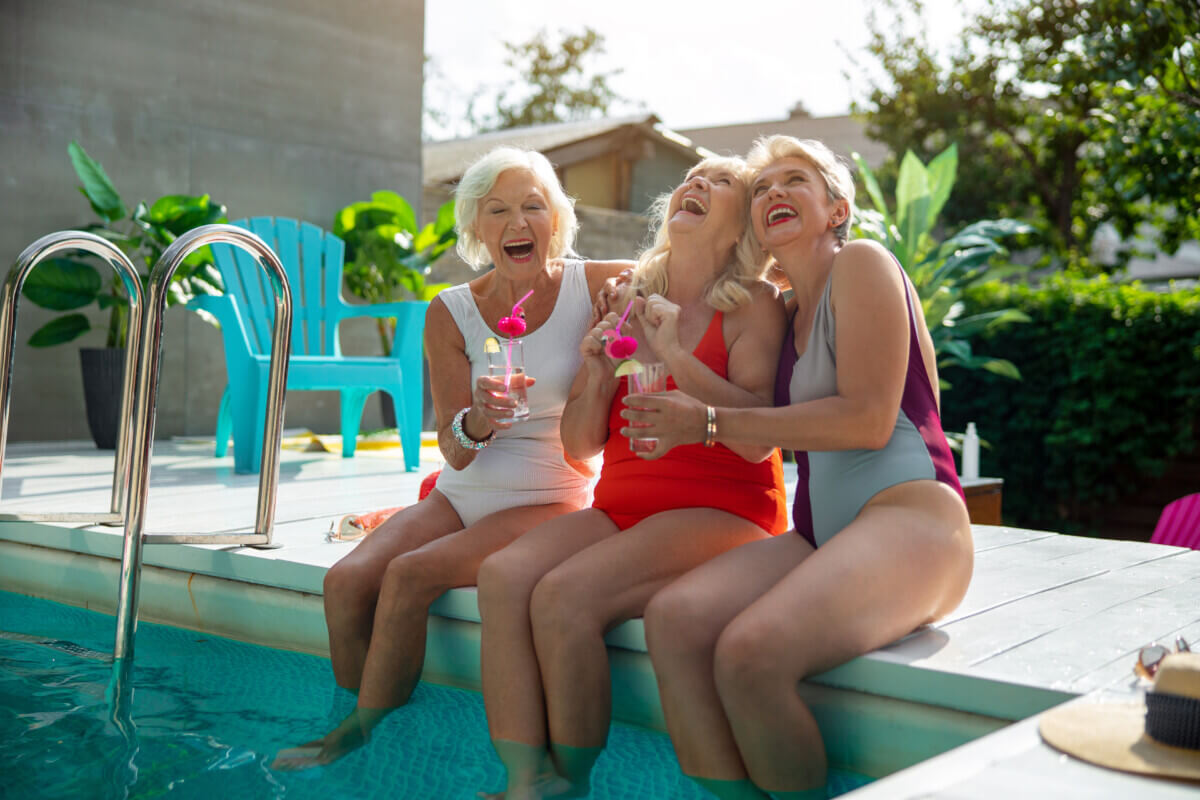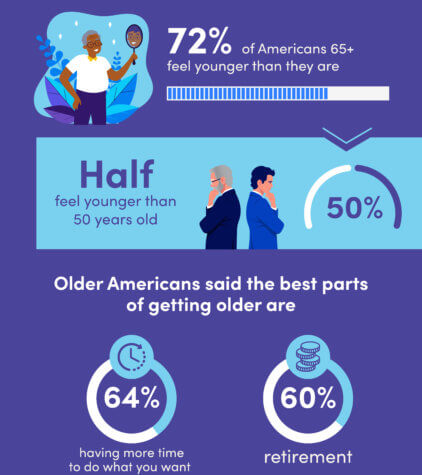
(© Yakobchuk Olena - stock.adobe.com)
NEW YORK — Three-quarters of seniors feel far more youthful than their age might suggest, with half saying they feel younger than 50 years-old! The new survey of 2,000 people ages 65 and older finds 84 percent have happily embraced aging.
According to the survey, the average person stops caring what others think of their age at 43. As older Americans enjoy their golden years, people feel the best parts of aging include having more time to do what they want (64%) and enjoying retirement (60%).

When speaking with their loved ones, 56 percent of older adults feel comfortable discussing health care plans and other important life choices with them. Two-thirds prefer consulting with someone in their lives to help with decision-making.
“Baby boomers are reinventing what it means to age, and they resent those outdated stereotypes of older adults,” says Keira Krausz, chief marketing officer at ClearMatch Medicare, in a statement. “They’re not letting their age interfere with their quality of life because the best years of their lives are still ahead of them.”
If and when older adults need help, many of them are cautious about who they turn to for assistance. Many older respondents would rather take matters into their own hands by getting information about benefits via professionals, especially retirement (45%) and health care (38%) programs.
FIfty-six percent of older adults feel selecting the best Medicare plans is difficult for them, prompting 61 percent to feel overwhelmed by the health care information they receive from multiple sources. Four in five respondents have become more cautious about trusting people than ever before because many fear being taken advantage of. That may be why 59 percent prefer to handle their own paperwork.
With 84 percent feeling confident in their understanding of online safety, more older Americans say they’re confident in their ability to research health care information (35%) instead of relying on family members (27%) and friends (23%).
However, awareness of online risks doesn’t make them feel less vulnerable. Since 58 percent are active on social media, more than half (53%) have their guard up when encountering online scams and fraudulent calls.
“Older adults today are well-equipped to utilize technology to choose goods or services they need – the shift to quarantine as a result of COVID has proved that,” Krausz says. “Although it may seem daunting at first, there are many digital tools available to help Americans make important decisions.”










